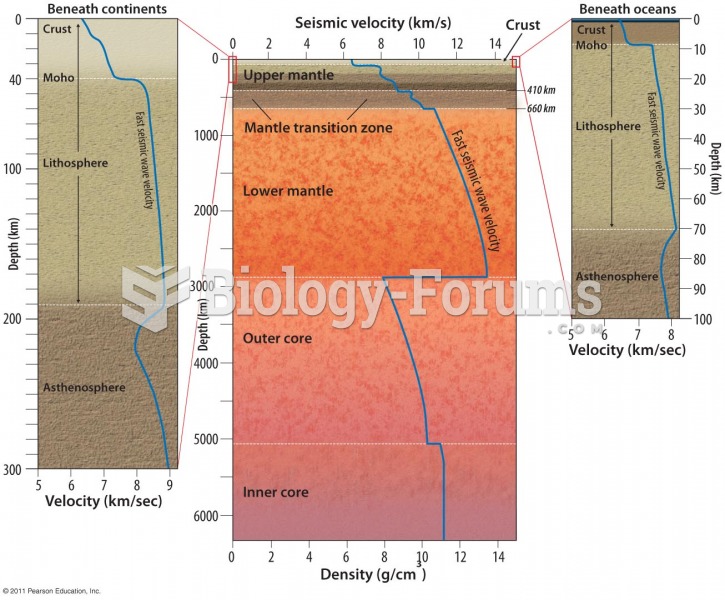|
|
|
There are major differences in the metabolism of morphine and the illegal drug heroin. Morphine mostly produces its CNS effects through m-receptors, and at k- and d-receptors. Heroin has a slight affinity for opiate receptors. Most of its actions are due to metabolism to active metabolites (6-acetylmorphine, morphine, and morphine-6-glucuronide).
If you could remove all of your skin, it would weigh up to 5 pounds.
Asthma-like symptoms were first recorded about 3,500 years ago in Egypt. The first manuscript specifically written about asthma was in the year 1190, describing a condition characterized by sudden breathlessness. The treatments listed in this manuscript include chicken soup, herbs, and sexual abstinence.
The shortest mature adult human of whom there is independent evidence was Gul Mohammed in India. In 1990, he was measured in New Delhi and stood 22.5 inches tall.
There are 60,000 miles of blood vessels in every adult human.
 Direct pressure to suboccipital muscles. Fingers press up into the cervical muscle attachments along ...
Direct pressure to suboccipital muscles. Fingers press up into the cervical muscle attachments along ...
 Apply direct pressure along upper trapezius, turning the head to access the area. Use your thumb to ...
Apply direct pressure along upper trapezius, turning the head to access the area. Use your thumb to ...
 Apply direct pressure to points on low back. Press into paraspinal muscles from the side. Move spot ...
Apply direct pressure to points on low back. Press into paraspinal muscles from the side. Move spot ...




